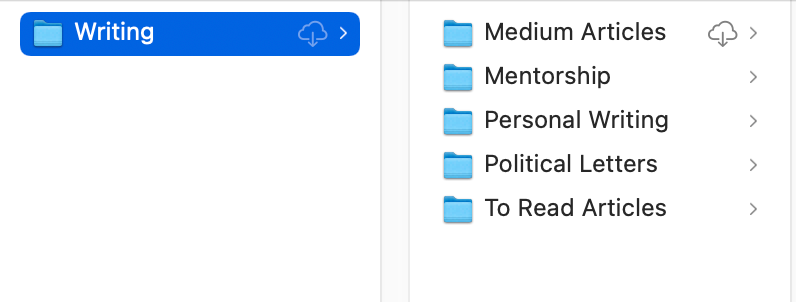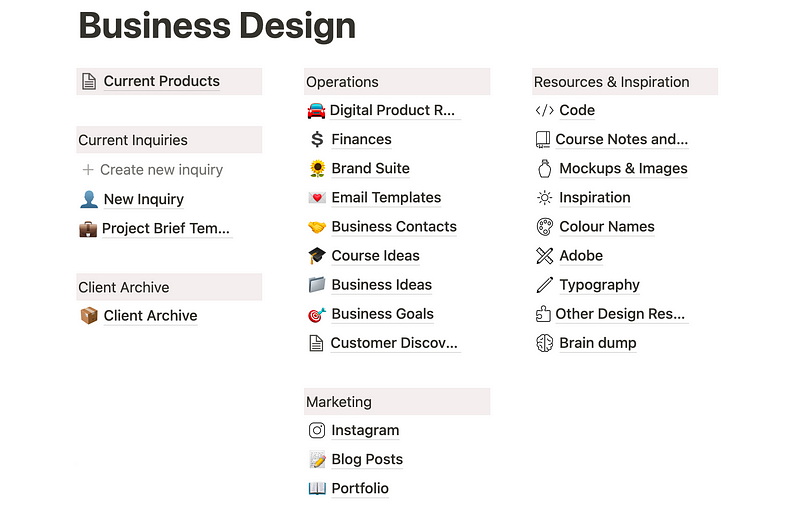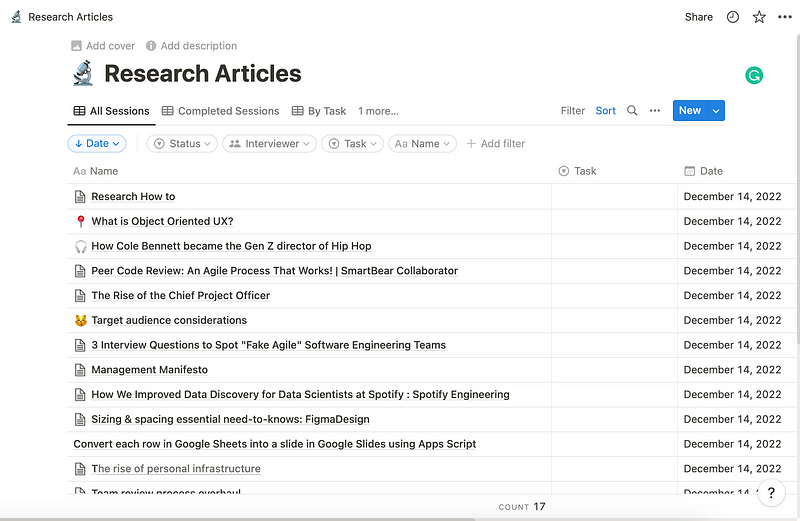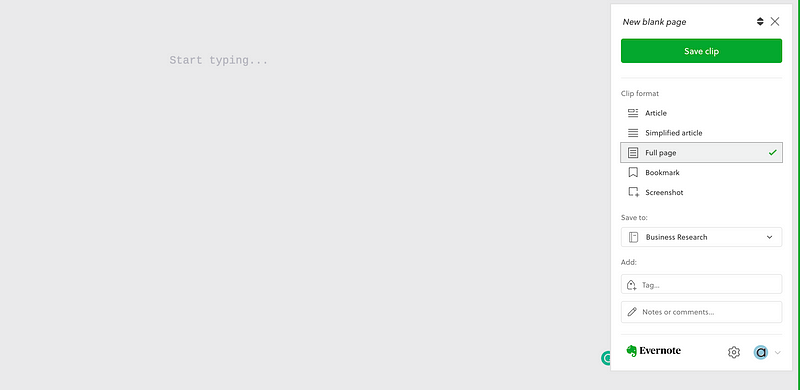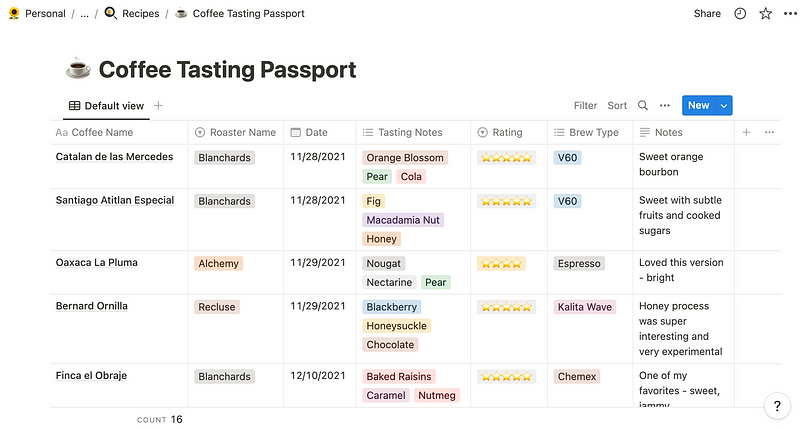Rethinking Your Notion Workflow: 3 Key Insights for 2024
Written on
Chapter 1 Understanding Notion's Limitations
Notion is a valuable tool for managing both personal and professional documents, yet it comes with its own set of challenges. Previously, I relied heavily on it to store notes, ideas, and organized research. However, over the last few months, I’ve significantly altered how I engage with the platform.
What prompted this change? I've encountered several hurdles when trying to merge my workflow with Notion's features. Here are the three primary issues I’ve identified:
Challenges in Organizing Extensive Information
Initially, setting up folders in Notion is straightforward, but as you accumulate diverse types of information, the organization can become increasingly complex. This may seem counterintuitive, given that Notion prides itself on user-friendliness, but effective organization often necessitates a personalized folder structure.
Taxonomy is a method to organize and categorize data hierarchically. It helps in understanding and grouping information based on similarities, whether in a tree-like or network format.
Planning a taxonomy can be quite tedious unless you have the time to delineate and create an effective filing system. Consider ways to minimize the amount of information that requires organization, allowing for more manageable divisions.
Time Spent Organizing Over Task Completion
Notion's templates can be incredibly helpful for productivity, but they can also complicate the process of organizing your research. It’s essential to remember that Notion is merely a tool; it won't complete tasks on your behalf.
One can easily become entangled in a quest for the "ideal" template, losing focus on actual tasks. Here’s an example of how this can happen:
To enhance efficiency, reflect on how you prefer to process information and categorize important documents. Is specialized storage necessary, or could simpler methods like tags or linked documents be more effective?
The Effort Required to Organize Research and Documents
Users often face friction when attempting to file documents in predetermined folders. The process of remembering where to place specific topics while creating new pages can be cumbersome. Cognitive organization is challenging, especially when you need to recall various research pieces and their storage locations.
Here’s an illustration of this issue:
Creating and categorizing research entries takes considerable time and effort. You may find yourself needing to revisit Notion multiple times to ensure everything is correctly tagged and easy to locate.
A noteworthy alternative I’ve found is Evernote's clipping feature, which allows for easier categorization of documents while browsing.
This raises an important question: Is organizing information always the best approach to managing knowledge?
Recently, I've been contemplating the reasons behind our need to organize information, particularly the balance between essential documentation and personal knowledge management. I’ve begun to phase out Notion’s folder system in favor of more straightforward blank documents, which, while appearing chaotic, allow for efficient keyword searches to retrieve needed information.
Exploring Alternative Note-Taking Tools
Two tools that come to mind for their tag-based or relational note-taking capabilities are Roam Research and Obsidian. Although I haven’t explored them yet, they seem promising for simplifying information retrieval.
My new approach is straightforward: if I need to remember something, I jot it down. This frictionless method enables me to later reorganize the information into larger documents if required.
A practical way to ensure I utilize my data effectively is through Todoist, which allows me to create tasks linked to keywords for easy reference.
Utilizing Notion Effectively
Although I’ve stepped away from using Notion for complex organizational structures, I still find its table features invaluable. I can track and plan trips, indicating their status as “in progress,” “not started,” or “completed.” This feature helps me visualize and manage my reading lists and other interests effectively.
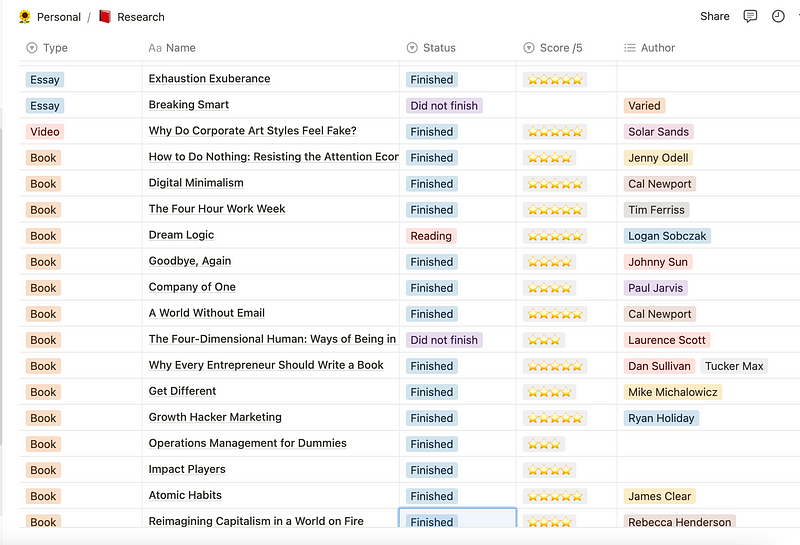
However, maintaining a complex table structure can be challenging without clear column definitions.
Another enjoyable use of Notion is documenting my craft coffee tastings:
Next Steps
Moving forward, my focus will shift toward utilizing Notion for specific tasks, particularly related to table-based data and tracking. I’m intrigued by the concept of a node-based note system like Roam or Obsidian and plan to delve deeper into their functionalities.
Notion and Roam Research both offer powerful capabilities for organizing and storing digital content. Notion excels in database and document management, while Roam Research facilitates quick information access. Evaluating your specific needs will help determine which tool best suits your requirements.
In my next article, I’ll share how I have tailored my personal knowledge base to better align with my note-taking and information-gathering strategies.
Chapter 2 Enhancing Your Notion Experience
This video discusses building an effective workflow in Notion, helping you maximize productivity and organization.
This tutorial explores common issues with Notion and offers practical solutions to improve your experience in 2024.
